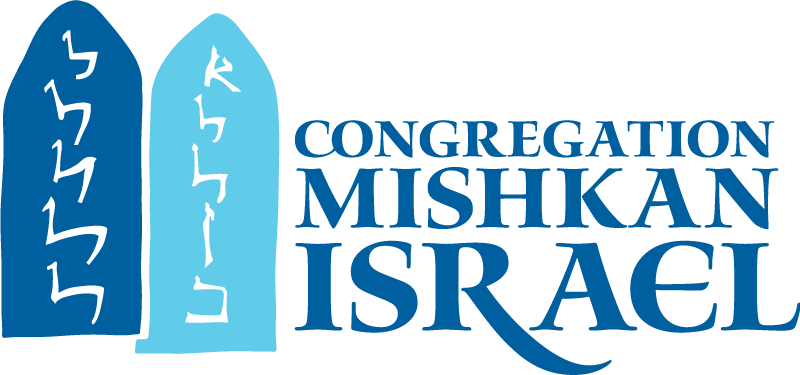High Holiday Message from the Rabbi
This is a year of turning: turning to reflect upon our past and then turning to embrace our future. This concept is embodied in teshuvah, our process of repentance throughout our High Holy Days. According to Rabbi Eliezar, teshuvah was created even before God began to create the world. Our existence depends so much upon our ability to reflect, reconsider, and return to our best selves that it was a necessary building block of creation. Contained within the word teshuvah is the root shuv (shin, vav, vet), meaning to turn. Teshuvah often compels us to reorient ourselves on our journeys in order not to make the same mistakes twice. Or for the third or fourth or fifth time as it often seems.
As our country is reopening after a long period of isolation, teshvuah can help us find the paths that not only prevent us from making mistakes, but those that fill us and our world with joy, blessings and wholeness. Just as when Adam and Chava ate from the tree of knowledge and their eyes were opened to the fact that they were naked, the pandemic opened many of our eyes to what may have been missing all along. Throughout the past year I have heard countless stories of those who, when turning left and right and seeing no one, were reminded about the importance of community.
In Judaism, we find four Hebrew words that we often translate as community, gathering, group or people: kehillah, eidah, tzibbor, and am. Some of these groupings are unbreakable: as an am, a people, all Jews are connected to and responsible for one another. According to Rabbi Lord Jonathan Sacks of blessed memory, Kehillah, eidah and tzibbor, however, imply connection based upon commonalities, either in similarity or purpose. Our connection and commitment to our sacred community is one of our most important values. Important both for the gifts we give and for the gifts that we receive. Whether it was making or receiving phone calls from our Chesed team, participating or listening to worship services, teaching or listening LEADERSHIP in Torah study, leading or sharing during our confronting racism series, growing and donating produce from the peah garden and so much more, each one of us at CMI helped our community and ourselves survive these past 19 months. When we are part of CMI, we are never alone.
Even though hundreds participated in last year’s High Holy Day services online, it was very lonely for Cantor Giglio, myself and the rest of the CMI team. Staring into a camera, even though I could see a few people on our screen, did not fill us up as we often feel during Rosh Hashanah and Yom Kippur. I am overwhelmed that our sanctuary will once again be filled for in-person High Holy Day services, that we will welcome our students back for in-person learning, and that our Brotherhood of Men and Women will continue serving bagels and coffee on Sunday mornings. As we turn to remember what was, we will also turn to embrace what will be. We will continue to offer multi-access worship and learning, both in person and over Zoom or Livestream. You can choose to participate in person or online whether you do not feel comfortable returning yet, you are travelling, or it is simply more convenient. No matter how we connect, each moment offers us the chance for sacred connection with others.
This High Holy Days will be one of teshuvah – turning, returning, reflecting and learning how we can be our best selves and our best as a community. Jenny, Maggie, Aiden and I wish you a Shanah Tovah u’Metukah, a sweet, healthy and happy new year.
